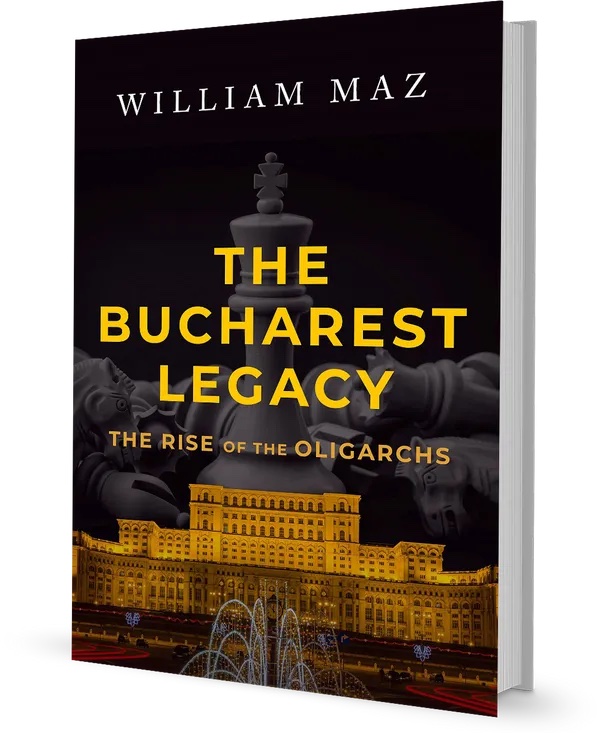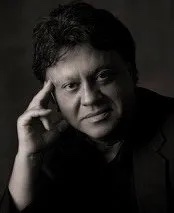Romance in Spy Thrillers
KJ Howe:
Romance and spies, two elements that intersect and create such a dramatic tour de force in suspense. But how do you find the right balance? Ask William Maz, author of The Bucharest Legacy.
By William Maz
It is no news to readers of spy thrillers, or viewers of espionage films, that along with the main spy plot, there is usually at least one subplot involving a romantic liaison of some kind. But gone are the days, as in the early James Bond movies, when women are treated merely as props or as damsels in distress to be saved. In today’s spy fiction, women often serve as the main characters, both good and evil, and the romance, if present, forms a crucial element of the novel.

The romantic subplot serves several functions in a spy novel. It allows the reader to see the more human side of the protagonist, to explore the emotional aspect of his or her life, and thus create a more rounded, believable character. The romantic plot may provide motivations for certain choices, or reasons for actions that may seem irrational at first. Structurally, the subplot provides material to keep the tension going while the main plot has a “down time,” a period between action. Seen as a graphic, each plot has peaks of increased tension when obstacles present themselves to the protagonist, and troughs when the tension is lowered after the obstacles are overcome. The aim is to create the peaks of the secondary plot to appear during the troughs of the main plot, thus always maintaining tension and keeping the reader’s interest. In a complex novel, one may have several subplots, one of them being a romantic one, another being a secret in the family, yet another the search for a tyrant’s ill begotten gains, all of which appear in my first novel. Or, as in my second novel, it may be the search for the protagonist’s roots, or trying to disrupt the corruption of the newly-created oligarchs.
While working on my first historical spy thriller, The Bucharest Dossier, I had no problem deciding how to include romance in it. The novel began as a love story in my mind, only later evolving into a spy thriller. The love story is at the heart of the novel, nestled inside an espionage plot, which is ensconced inside the events of the revolution that freed the Romanian people of the tyrant Nicolae Ceausescu and communism.

But in my second novel, The Bucharest Legacy —The Rise of the Oligarchs, I had to consider how to include love and sex in such a way that it is not seen as gratuitous, but actually serves as an important element of the plot. I sweated over the decisions, fearing that I may be pushing the envelope a bit too far, that a spy thriller may not be the place in which to examine the ugly underbelly of a corrupt communist regime that allowed the privileged to wield power over women. My intention, however, has never been to write just a compelling spy thriller, but to describe the societies and historical periods in which the stories take place. But doing that accurately may depict women in roles that we would not accept today, and which the reader will need to be convinced are historically faithful and necessary to illustrate.
Writing sex scenes is, for me, the most difficult aspect of writing. It must be done tastefully, one voice tells me, even if the act you’re trying to depict may not be so. It must show the stark truth, another voice says, even though the truth may be too much. The writer has to decide on the distance from which the reader is asked to watch, and try to depict just the right degree of detail while keeping the rest of it nebulous enough, like an impressionistic blur, to allow for imagination to take over. It is like walking a tightrope. Writing the scene to match the tone of the rest of the book is one way to go about it, although often the opposite creates the best effect. Another is to try to put oneself in the role of the reader, difficult as that may be, and judge if the scene produces the desired emotional response. In the end, one may be tempted to skip the sex scenes altogether, or mention they happened offstage. But this option, too, is unsatisfactory, for it risks leaving the reader feeling cheated. In an act of desperation, the writer may decide to follow the Zen master and choose the middle path, but that may turn out to be too safe and bland.
Whatever decisions the writer makes, they will never satisfy all readers, or maybe even the majority of them. In the end, the writer needs to satisfy his or her own sense of what is true and artistically sublime.

WILLIAM MAZ was born in Bucharest, Romania, of Greek parents and emigrated to the U.S. as a child. He is a graduate of Harvard University, Mount Sinai School of Medicine, and Yale residency. During his high school and undergraduate years, he developed a passion for writing fiction. He studied writing at Harvard, the New School, The Writer’s Studio in New York City, and with Gordon Lish, and is now writing full time. The Bucharest Legacy is his latest novel and the sequel to The Bucharest Dossier.
















































These books sound fascinating! I was in Bucharest and the tour guide took us to the building and showed us the balcony where Ceausescu made his last speech and realized that he wasn’t going to be able to stop this revolution before escaping via helicopter.
I always say I went to the Alastair MacLean school of romance—where the two leads never touch each other the whole book and then decide to get married on the last page!
What a great summary of the challenge to include a romantic sub-plot in a thriller. Just last night we watched a movie on the Great American Family Channel about a mystery writer told to include a romance in his new book. He clashes with the assigned editor – they finally work it out (and, of course, end up in a romance of their own). Now I can’t wait to read THE BUCHAREST LEGACY! Thanks for being our guest blogger!!